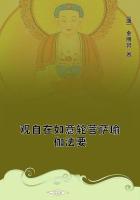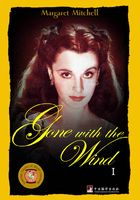'Plain in figure and in face, she was never common-looking,' says Mr. Harness. He gives a pretty deion of her as 'no ordinary child, her sweet smiles, her animated conversation, her keen enjoyment of life, and her gentle voice won the love and admiration of her friends, whether young or old.' Mr. Harness has chiefly told Miss Mitford's story in her own words by quotations from her letters, and, as one reads, one can almost follow her moods as they succeed each other, and these moods are her real history. The assiduity of childhood, the bright enthusiasm and gaiety of her early days, the growing anxiety of her later life, the maturer judgments, the occasional despairing terrors which came to try her bright nature, but along with it all, that innocent and enduring hopefulness which never really deserted her. Her elastic spirit she owed to her father, that incorrigible old Skimpole. 'I am generally happy everywhere,' she writes in her youth--and then later on: 'It is a great pleasure to me to love and to admire, this is a faculty which has survived many frosts and storms.' It is true that she adds a query somewhere else, 'Did you ever remark how superior old gaiety is to new?' she asks.
Her handsome father, her plain and long-enduring mother, are both unconsciously described in her correspondence. 'The Doctor's manners were easy, natural, cordial, and apparently extremely frank,' says Mr. Harness, 'but he nevertheless met the world on its own terms, and was prepared to allow himself any insincerity which seemed expedient. He was not only recklessly extravagant, but addicted to high play. His wife's large fortune, his daughter's, his own patrimony, all passed through his hands in an incredibly short space of time, but his wife and daughter were never heard to complain of his conduct, nor appeared to admire him less.'
The story of Miss Mitford's 2O,OOO pounds is unique among the adventures of authoresses. Dr. Mitford, having spent all his wife's fortune, and having brought his family from a comfortable home, with flowers and a Turkey carpet, to a small lodging near Blackfriars Bridge, determined to present his daughter with an expensive lottery ticket on the occasion of her tenth birthday. She had a fancy for No. 2224, of which the added numbers came to 10. This number actually came out the first prize of 2O,OOO pounds, which money started the family once more in comparative affluence. Dr. Mitford immediately built a new square house, which he calls Bertram House, on the site of a pretty old farmhouse which he causes to be pulled down. He also orders a dessert-service painted with the Mitford arms; Mrs. Mitford is supplied with a carriage, and she subscribes to a circulating library.
A list still exists of the books taken out by her for her daughter's use; some fifty-five volumes a month, chiefly trash: 'Vicenza,' 'A Sailor's Friendship and Soldier's Love,' 'Clarentina,' 'Robert and Adela,' 'The Count de Valmont,' 'The Three Spaniards,' 'De Clifford'
(in four volumes) and so on.
The next two or three years were brilliant enough; for the family must have lived at the rate of three or four thousand a year. Their hospitality was profuse, they had servants, carriages, they bought pictures and furniture, they entertained. Cobbett was among their intimate friends. The Doctor naturally enough invested in a good many more lottery tickets, but without any further return.
The ladies seem to take it as a matter of course that he should speculate and gamble at cards, and indeed do anything and everything he fancied, but they beg him at least to keep to respectable clubs.
He is constantly away. His daughter tries to tempt him home with the bloom of her hyacinths. 'How they long to see him again!' she says, 'how greatly have they been disappointed, when, every day, the journey to Reading has been fruitless. The driver of the Reading coach is quite accustomed to being waylaid by their carriage.' Then she tells him about the primroses, but neither hyacinths nor primroses bring the Doctor away from his cards. Finally, the rhododendrons and the azaleas are in bloom, but these also fail to attract him.
Miss Mitford herself as she grows up is sent to London more than once, to the St. Quintin's and elsewhere. She goes to the play and to Westminster Hall, she sees her hero, Charles James Fox, and has the happiness of watching him helped on to his horse. Mr. Romilly delights her, but her greatest favourite of all is Mr. Whitbread.















